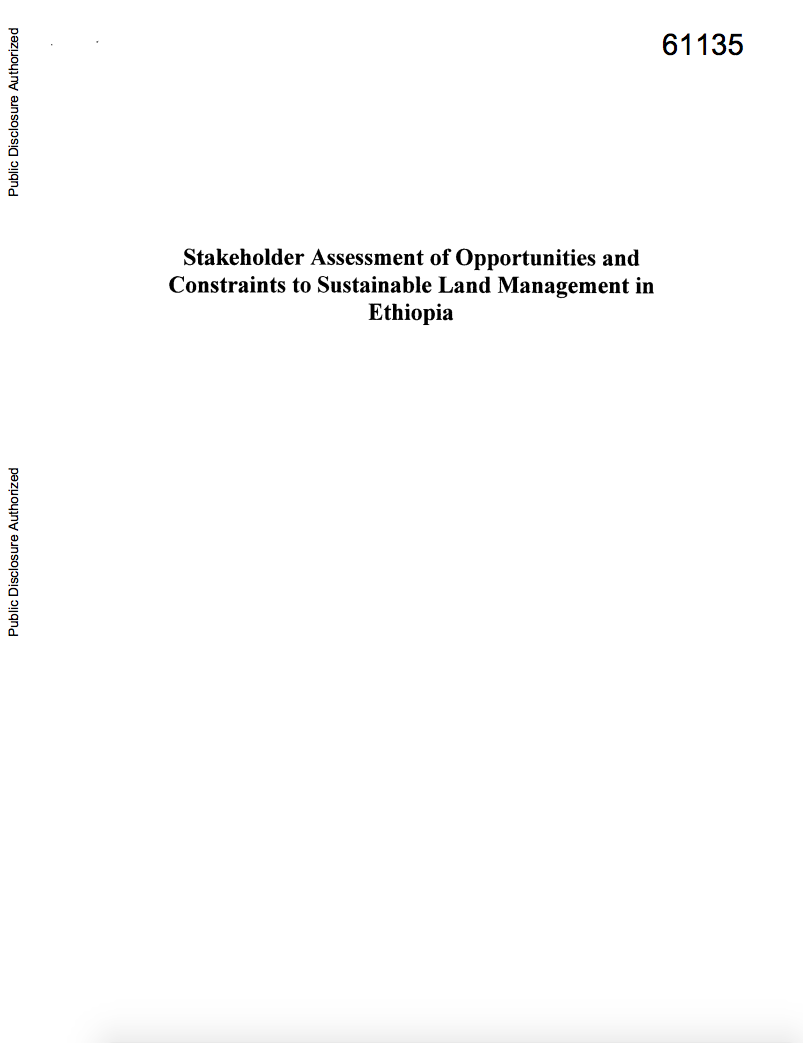Federal Democratic Republic of Ethiopia : Options for Strengthening Land Administration
Over the coming decades, land policy and
administration, for urban as well as rural areas, will be
critical for Ethiopia's development. The vast majority
of people making up the Federal Democratic Republic of
Ethiopia's (FDRE) predominantly agricultural economy
live in rural areas. Finally, land policies and
administration can contribute significantly to the
objectives of promoting gender equality and protecting


